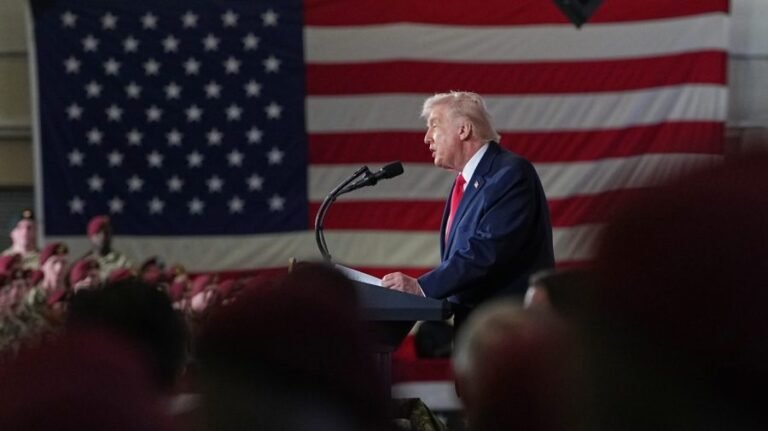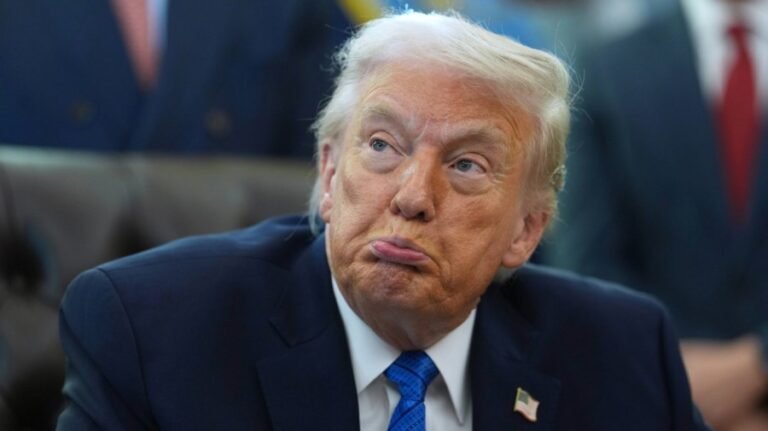
The first seven weeks of President Trump’s second term have unbalanced fundamental strategic assumptions that the United Kingdom and Europe have relied on for decades. It is too early to say with confidence whether these are passing tremors or a more lasting realignment, but we are living in a different world from the one that existed before Jan. 20, and we will be doing so for some time.
These geopolitical shifts have been acutely unsettling for Britain. There is a lot of cant about the “special relationship” between the U.S. and the U.K., which has never been a straightforward bond, nor one of equals. Nevertheless, for more than 80 years, it represented a basic connection from which much else could flow. Suddenly, in 2025, political, diplomatic and military leaders in London are wondering if they can make any assumptions at all.
One of the most shocking conversations that can now be heard, even if only in whispers and corners, is about the U.K.’s strategic nuclear deterrent.
When the British government decided in 1946 and 1947 to develop its own atomic bomb, the foreign secretary, Ernest Bevin, arriving late to a cabinet committee meeting, went to the heart of the issue. “We’ve got to have this thing,” Bevin said, referring to the bomb. “I don’t mind it for myself, but I don’t want any other foreign secretary of this country to be talked at, or to, by the secretary of state of the United States as I just have in my discussions with Mr. [James F.] Byrnes. We’ve got to have this thing over here, whatever it costs. We’ve got to have the bloody Union Jack on top of it.”
Cynics will tell you that Britain’s nuclear weapons are not independent in practice and that America could effectively veto their use. It is a nuanced picture: The Royal Navy has four Vanguard-class nuclear-powered submarines, each capable of carrying 16 Trident ballistic missiles; each missile can have up to eight nuclear warheads (though the U.K. has only around 225 warheads in total). The submarines, missiles and warheads are all being replaced over the coming years.
The Vanguard-class boats, like their eventual successor the Dreadnought class, are built in the U.K., as are the warheads. The Royal Navy crews are wholly independent and under the authority of the British government, and each boat carries handwritten instructions to the captain from the prime minister in case the very worst happens. The warheads are designed and manufactured by the Atomic Weapons Establishment, which is ultimately owned by the Ministry of Defence.
On the other hand, Lockheed Martin makes the Trident missiles, and they are stored and maintained communally with those for the U.S. Navy’s Ohio-class submarines at Kings Bay in Georgia. The new Dreadnought-class boats will share a missile compartment design with the American Columbia-class, and the two countries are developing their new warheads in parallel. So the British nuclear deterrent at least relies on American support; if that were for any reason withdrawn, Britain would be seriously compromised.
For nearly 70 years, this interdependence gave no cause for concern. The U.S. and Britain signed a mutual defense agreement on nuclear weapons in 1958 — Harold Macmillan, the prime minister who negotiated the treaty with President Dwight Eisenhower, called it “the Great Prize” — that underpinned the bilateral relationship and allowed the U.K. to punch above its weight globally.
There is no immediate reason to think that Trump might seek to disrupt the long-standing alliance. Yet last week, a former British ambassador to Washington David Manning told a House of Lords committee that American withdrawal from the relationship or from NATO is no longer “inconceivable.”
“I think we now have to address them,” he said. “It doesn’t mean that they will happen, but I think they are on the table.”
Trump’s suspension of military aid and intelligence-sharing with Ukraine has been a wake-up call. The president showed no hesitation in using his military leverage to impose his will. It was not just stopping supplies of arms and equipment — Ukraine lost access to real-time satellite images and signals data, severely limiting its targeting and early warning capabilities. Its U.S.-supplied missile systems simply stopped working.
Britain’s relationship with the U.S. is, of course, much closer and of longer standing than Washington’s bond with Kyiv. Nevertheless, two things are clear. The first is that some of the U.K.’s most important defense capabilities — including the nuclear deterrent, the F-35 Lightning fighter aircraft and the Five Eyes intelligence alliance — are almost impossible to disentangle from the U.S.
The second is that, as far as Trump is concerned, history is bunk. Every day, every hour is its own miniature Year Zero, and 70 years of cooperation will mean nothing if the president sees a way to get what he wants.
There are some hard yards of demanding diplomacy ahead, and a rupture between Washington and London that could devastate Britain’s military power and reach is neither imminent nor likely. But for the first time in generations, it is not inconceivable.
Eliot Wilson is a freelance writer on politics and international affairs and the co-founder of Pivot Point Group. He was senior official in the U.K. House of Commons from 2005 to 2016, including serving as a clerk of the Defence Committee and secretary of the U.K. delegation to the NATO Parliamentary Assembly.


